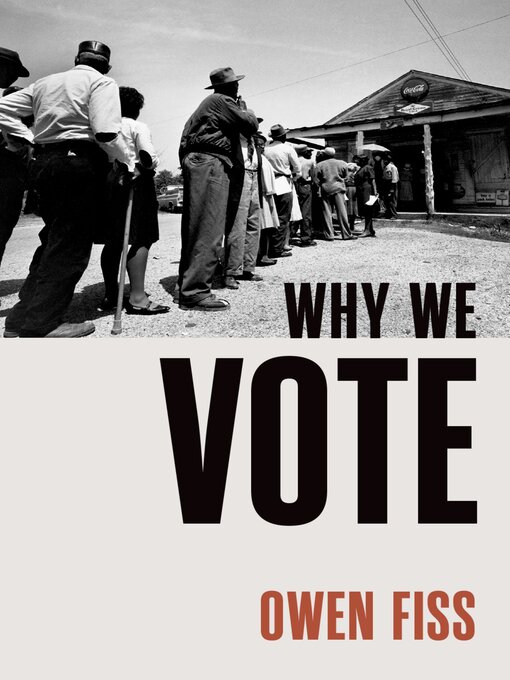-
Description
-
Details

Kindle Book
- Release date: January 18, 2024
OverDrive Read
- ISBN: 9780197746400
- Release date: January 18, 2024
EPUB ebook
- ISBN: 9780197746400
- File size: 380 KB
- Release date: January 18, 2024

-
Details
Publisher:
Oxford University Press
Kindle Book
Release date: January 18, 2024
OverDrive Read
ISBN: 9780197746400
Release date: January 18, 2024
EPUB ebook
ISBN: 9780197746400
File size: 380 KB
Release date: January 18, 2024
-
Creators
- Owen Fiss - Author
-
Formats
Kindle Book
OverDrive Read
EPUB ebook
-
Languages
English
Why is availability limited?
×Availability can change throughout the month based on the library's budget. You can still place a hold on the title, and your hold will be automatically filled as soon as the title is available again.
The Kindle Book format for this title is not supported on:
×Read-along ebook
×The OverDrive Read format of this ebook has professional narration that plays while you read in your browser. Learn more here.
